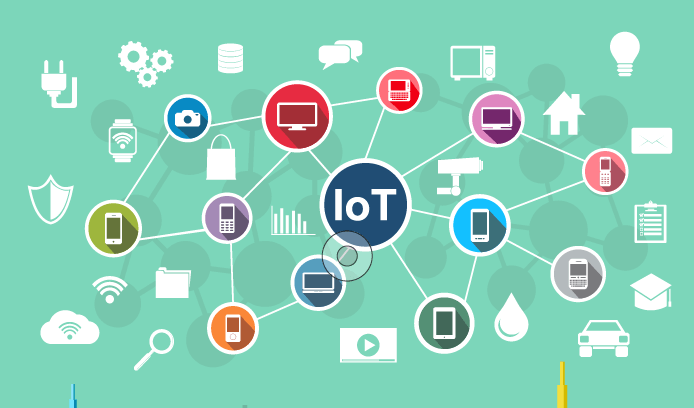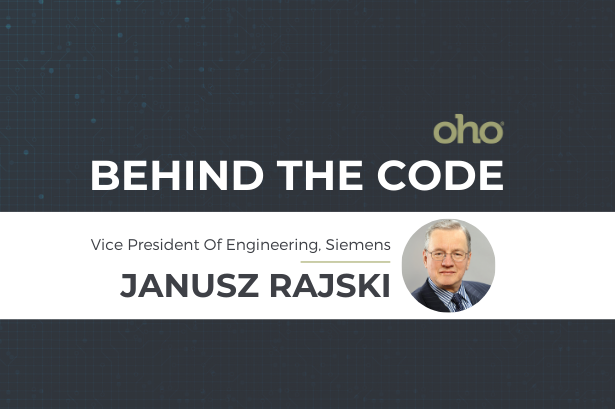
Oho Reviews The Impact Of The Internet Of Things On The 2020 Jobs Market
25 Feb, 20205 mins
At Oho we make it our mission to keep abreast of the trends which impact our core sectors, the Internet of Things (IoT) being one of them. Our Consultant Jack Longbottom, who specialises in Embedded Systems recruitment, reviews what our clients and candidates need to know about the IoT to secure both the best talent and available roles in 2020 and beyond.
Can you talk about IoT within your industry? Why do you think this is going to be more prominent in 2020?
IoT is undoubtedly the fastest growing area within embedded recruitment right now and shows no sign of slowing down. This is because IoT devices have become massively popular with estimates showing that, by 2025, as many as 75 billion of them could be in consumer hands worldwide. Businesses have followed suit, seeking to use the technology to gain more information about their processes and streamline their cumbersome workflows.
IoT platform Particle released a study on their work with companies across a variety of industries to show how companies were using IoT devices and what the effects of the technology were on their organisations. According to the report, the IoT industry may eventually have an economic impact of more than $11 trillion (£8 trillion) by 2025. At the top end, that level of value would be equivalent to about 11 per cent of the total world economy
As a result of this proliferation, people are becoming more and more reliant on their smartphones and wearables such as smartwatches and fitness trackers. There is an expectation that we should be able to connect to almost anything from them, from the more traditional IoT devices like smart speakers, central heating and televisions, right through to our doorbells and cars.
What type of industry/companies/job roles will be affected by IoT?
I think it will impact almost every industry, from manufacturing, agriculture and healthcare to the companies that create any sort of electronic device that feeds into the IoT. The automotive industry, for example, will continue to adopt IoT technologies so that vehicles gather and monitor data and communicate with smart cities and other vehicles. Data will become the lifeblood of the automotive industry and the business model will shift further towards data-driven business models. The industry must also focus on developing the most secure IoT solutions because this is a key step in transforming this sector as major security concerns and its perceived vulnerabilities have subdued its widespread adoption. I think with regard to job roles that there will be an increased need for engineers who have experience with real-time operating systems and bare metal development.
What advice would you give to a client within your sector looking to recruit talent to support IoT?
When you start to recruit, make sure that you have a process that will allow you to make decisions and move quickly. Talented engineers with the right skills do not stay on the market for long.
What do candidates who specialise in IoT expect from an employer?
Like a lot of the engineers we deal with in other niche areas, they are looking for an environment where the work that they are doing allows them to innovate and create and, with that, develop their skills and progress quickly.
What do you think will be the follow on from this trend? IoT is always changing and progressing. Do you think this will lead to the rise or development of anything else later in the year?
I think it is beyond a ‘trend. It is an integral part of some aspects of what we do in our lives and work. I think what will follow is more questions and challenges that technology must match, like how do you securely manage IoT devices at scale, how device management should underpin your data strategy or if companies should manage device data on the cloud or on premises? 5G's impact will also first be felt through the IoT. While it is now setting new standards for speed and bandwidth on your phone, it will expand to encompass many ‘things’ and, in its wake, the IoT era will truly arrive.
In fact, according to Statista, the total installed base of IoT connected devices is projected to amount to 75.44 billion worldwide by 2025, a fivefold increase in 10 years.
With all this will come a proliferation of niche businesses targeting a specific area within the IoT, such as security, computer vision and healthcare.
Can you recommend any industry sources for up-to-date IoT information? Have you read anything recently about this particular tech?
There is so much to read on all things IoT as it is such a hot and diverse topic, be it the latest trends in this space, new reports and burning questions. Any Google search of the IoT returns so many interesting articles. Outside of that there are meetups and exhibitions that don't always carry a hefty price tag where people can go to and talk, learn and connect. Trade shows are always a good way to see what the future may hold as companies use them as a platform to show off their latest technology and will be more than happy to discuss where they see the sector moving and shifting.
Visit Oho to learn more about all of our current IoT roles.


